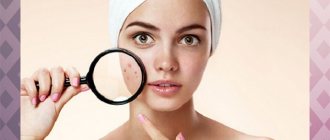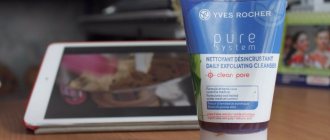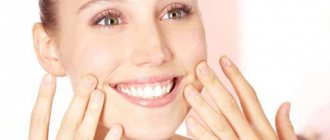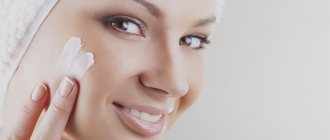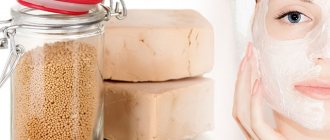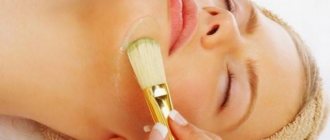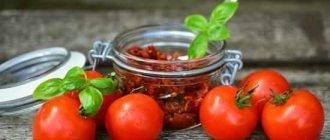Products good for skin
What healthy foods should you include in your diet to keep your facial skin healthy?
It is very important that the diet is balanced. During the day it is recommended to consume 400 g of fruits and vegetables. They contain a large amount of fiber. vitamins, microelements. You can get rid of acne, pigmentation, and dry skin by including some foods in your diet.
For age spots
Pigmentation may indicate a lack of vitamins and in particular vitamin B12. Animal products are rich in this vitamin.
Products containing vitamins C, E, and antioxidants will help get rid of pigmentation.
Rich in them:
- Citrus;
- Strawberry;
- Kiwi;
- Pomegranate;
- Tomatoes.
Long exposure to the sun makes pigmentation more noticeable. You can protect your skin from ultraviolet rays. by eating foods rich in antioxidants:
- Pineapples;
- Grapefruits;
- Plum;
- Berries;
- Spinach;
- Chilli;
- Cabbage – kale and Brussels sprouts;
- Buckwheat.
For oily skin
The secretion of sebaceous glands is increased by foods with a high glycemic index.
The glycemic index is a relative indicator of the effect of carbohydrates in food on changes in blood sugar levels.
Source Wikipedia
The cause of oily shine is the increased secretion of sebum by the glands.
A diet high in vitamin A will help prevent you from getting oily. In addition, the foods included in the diet are not only healthy, but also tasty. This:
- Carrot;
- Dried apricots;
- Mango;
- Spinach;
- Sweet potato;
- Egg yolk.
In addition, it is necessary to reduce the consumption of white bread, buns, potatoes, and soft wheat pasta. And very soon you will forget about skin problems.
For acne
Acne occurs in people with oily skin. And again, foods with a high glycemic index are to blame for this. Sebaceous glands clog pores. Bacteria begin to multiply and as a result, an inflammatory process develops.
You can also get rid of acne with diet. The diet should include as many foods as possible rich in polyunsaturated fatty acids, because... they relieve inflammation. This:
- Walnuts;
- Linseed oil;
- Flax seeds;
- Seafood;
- Seaweed;
- Fruits;
- Vegetables.
For dry skin
Dry skin indicates an excess of vitamin E and a lack of cholesterol. Lack of cholesterol is typical for vegetarians, since most of it enters the body when eating meat and fish.
To increase the concentration of unsaturated fatty acids in the diet, you must include:
- Legumes;
- Eggs;
- Seaweed;
- Nuts;
- Avocado;
- Soy.
Drinking regime
Now we know very well that maintaining water balance is very important. But the condition of the epidermis and hair also depends on it. However, this process has its own nuances. The most important thing is that skin hydration is associated with many factors and the amount of water you drink, although important, is not fundamental. As proof, a simple example can be given: skin type does not depend on the amount of fluid in the body, but is determined by the rate of moisture passage through cell membranes.
If we talk about hydration of the epidermis, then the most important thing is not the liters of water you drink, but internal factors. So, a whole complex of different molecules, which is also called natural moisturizing factor (NMF), is responsible for maintaining water balance. It mainly consists of free amino acids, their derivatives, inorganic salts, sugars and urea. All these elements are located in the stratum corneum of the skin, attracting and retaining moisture.
In addition to NMF, aquaporins have a great influence on the hydration of the dermis. Abbreviated as AQP. These membrane proteins act as a kind of “molecular tunnel” for moisture, helping it enter the skin. Epidermal cells contain predominantly AQP3, which transports water and glycerol, which help the dermis maintain hydration. The AQP3 gene of the same name can tell you how efficiently water and glycerol dissolved in it are transported, as well as how effectively the stratum corneum protects the lower layers from excess moisture loss.
What is good for facial skin
Not every woman can boast of good skin condition. Some people have dry skin, while others have oily skin. Skin care does not only mean using different creams and toners every day. The food we eat every day is important.
What foods should you limit yourself from?
Sunflower oil
It does not harm the body and there is no need to give it up. But the form in which it is consumed is of great importance for the skin.
When cooking, the oil is subjected to heat treatment. As a result, free radicals are formed, which negatively affect the skin. In large quantities, they lead to changes in the acid-oily composition of the skin.
To avoid problems with fat content, you should consume as little processed oil as possible. Oily skin will not be affected by consuming oil in the proportion of 1 g per 1 kg of weight.
Sugar
Excessive sugar consumption can lead to acne. Glucose is the enemy of collagen, a substance that promotes skin rejuvenation. It simply destroys it if it regularly exceeds the required norm.
The approximate norm of sugar consumption per day is 30 – 45 grams.
Protein products
Consuming them in large quantities makes it difficult for the liver and intestines to function.
The record holders for protein content are:
- Meat;
- Fish;
- Eggs;
- Cheese;
- Soy;
- Cottage cheese;
- Beans.
To protect your skin from acne, the daily dose of protein should be 1 g per 1 kg of weight.
Pickles
An excess of salt in the body leads to moisture retention, and with it toxins, which can cause acne.
Therefore, you should limit yourself in eating salty foods. The daily norm should be 50 g per day.
Tea
The caffeine content in it reduces the activity of blood flow and nutrients to the skin.
People with dry skin are not recommended to drink more than 2 glasses of tea per day.
Alcohol
It is a depressant that slows down all processes in the body. In large doses, it slows down the reaction and negatively affects coordination of movements.
Alcohol abuse can lead to obesity, stomach ulcers, liver cirrhosis, kidney and heart diseases.
The harmless rate of consumption of alcoholic beverages is 50–100 ml per week.
Products beneficial for facial skin
Vegetables
The best companions for healthy and beautiful skin are vegetables. Therefore, they must be present in the diet of every person. Just 100 g of vegetables a day will make your skin glowing.
Vegetables are a valuable source of vitamins and minerals and contain fiber. It improves the functioning of the digestive system, effectively removes toxins and harmful substances, and increases the body's defenses.
15 Healthiest Vegetables
- Carrot;
- Tomatoes;
- Garlic;
- Onion;
- Bell pepper;
- Beet;
- White cabbage;
- Cauliflower;
- Broccoli;
- Potato;
- Zucchini;
- Eggplant;
- Radish;
- Spinach;
- Pumpkin.
Fermented milk products
Fermented milk products include:
- Cottage cheese;
- Ryazhenka;
- Yogurt;
- Kefir;
- Sour cream;
- Kumis.
Their consumption has a beneficial effect on intestinal function.
Fatty fish
Types of oily fish include:
- Salmon;
- Halibut;
- Sturgeon;
- Salmon;
- Beluga;
- Chinook;
- Nelpa;
- Atlantic herring.
Varieties of fatty fish are rich in vitamins, microelements, protein, and Omega-3 polyunsaturated fatty acids. They help lower cholesterol levels, improve blood circulation, and reduce the risk of blood clots.
Regular consumption of varieties of fatty fish improves the condition of joints and skin, and has a positive effect on brain function. The general emotional state is normalized, depression is reduced. The risk of intestinal inflammation and cancer formation is reduced.
Basic nutrition rules
It is impossible to develop an effective diet that helps the skin stay beautiful and healthy without information about genetic characteristics.
There is even a special section in genetics that studies the influence of genes on the properties of the skin and the features of the external manifestation of age-related changes. It's called dermatogenetics. For example, dermatogenetics can tell us about the rate of collagen production and destruction, vascular strength, and susceptibility to bone destruction. But this is not all the information. Genetic analysis can tell us about glycation, photoaging, antioxidant protection, how the lack of nutrients and microelements affects the condition of the skin, and how prone it is to inflammation or allergies.
A reasonable question is what to do with all this information? The answer is simple - choose those products that will help maintain external youth and health.
Vitamins
When talking about nutrition for healthy skin, one cannot help but touch on the topic of vitamins. Several microelements should be highlighted here:
- “C”, which in addition to the production of collagen is involved in the synthesis of elastin and helps with antioxidant protection.
- “A” is extremely beneficial for the health of the skin, as well as bones, hair, and the normal functioning of the immune and reproductive systems.
- “D”, responsible for the renewal of the stratum corneum of the skin and hair growth.
- "E" is important for protecting cell membranes from free radicals.
- And finally, B vitamins numbered 6, 9 and 12.
The lack of even one vitamin can negatively affect the condition of the skin. Moreover, genetics plays a huge role in the deficiency of beneficial microelements. Thus, changes in the SLC23A1 gene, a molecule that transports vitamin C and is involved in its absorption from food, leads to a decrease in the concentration of ascorbic acid. And this affects the production of collagen in the body. The result is flabby skin that does not cope well with microdamages.
Another gene, BCMO1, encodes an enzyme that converts carotenoids into vitamin A. But in part of the world’s population, beta-carotene (a precursor to vitamin A, found in carrots and pumpkin) is not converted into this useful microelement. Therefore, despite eating the right foods, a person may lose health and beauty in appearance.
Citrus
Vitamin C is a well-known antioxidant that has become a star ingredient in many beauty products this year. It works as a shield against ultraviolet radiation and environmental aggression. It is also found in abundance in oranges, tangerines, grapefruits and lemons.
Citrus fruits contain a lot of water (oranges are 87% water, and grapefruits are 88%). Eating plenty of water-rich foods will help you stay hydrated.
Nuts
Nuts are among the leaders in the content of vitamin E, omega-3 and omega-6 fatty acids, without which it is difficult to imagine the normal functioning of the skin barrier functions. Walnuts contain large amounts of antioxidants. They are a rich source of monounsaturated fats that are healthy for your heart and healthy skin. Research shows that walnuts reduce the amount of bad cholesterol.
The main thing is not to indulge in tasty, but very high-calorie foods. Ideally, choose the unroasted version of your favorite almonds, walnuts and pistachios.

